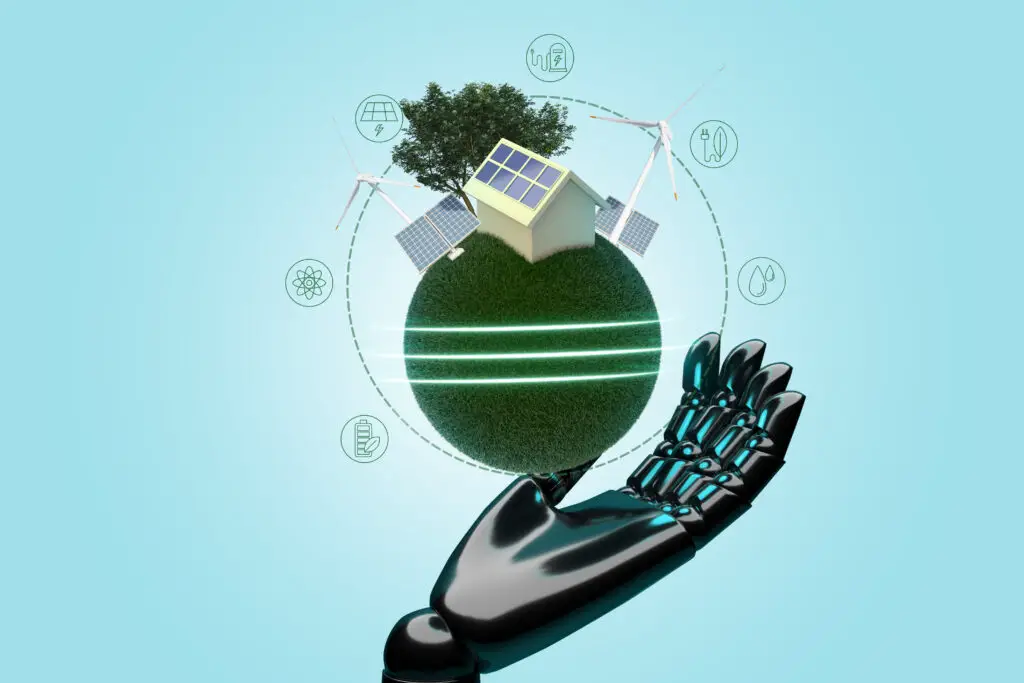Climate change is the defining challenge of our generation. As the world grapples with rising temperatures, extreme weather events, and rising sea levels, the need for innovative solutions has never been greater. Artificial intelligence (AI) is emerging as a powerful tool in the fight against climate change, offering a glimmer of hope for a sustainable future.

AI for Climate Modeling: Predicting the Future to Shape the Present
Climate models are crucial for understanding the long-term impacts of climate change. However, these models are complex and require vast amounts of data. AI can analyze this data with unprecedented speed and accuracy, leading to more sophisticated climate models. This allows scientists to predict future climate scenarios with greater confidence, enabling policymakers to make informed decisions about mitigation and adaptation strategies.
Optimizing Renewable Energy Production: Powering the Future Efficiently
Renewable energy sources like solar and wind power are essential for transitioning away from fossil fuels. However, they are often variable and unpredictable. AI can help optimize renewable energy production by forecasting weather patterns and energy demand. This allows for better grid management, integrating renewable sources seamlessly and maximizing their efficiency. AI can also optimize the placement of renewable energy infrastructure, such as solar panels and wind turbines, ensuring they capture the most energy possible.
Managing Natural Disasters: Mitigating the Impact of a Changing Climate
Climate change is leading to more frequent and intense natural disasters like floods, heatwaves, and wildfires. AI can play a crucial role in disaster management by analyzing real-time data to predict and track these events. Early warnings powered by AI can help communities evacuate vulnerable areas and prepare for the impact, minimizing loss of life and property damage.

The Road Ahead: Challenges and Opportunities
While AI offers immense potential for combating climate change, there are challenges to consider. The development and training of AI models require significant computing power, which can contribute to greenhouse gas emissions. Additionally, ensuring equitable access to AI technology and addressing potential biases in algorithms is crucial.
Despite these challenges, the potential benefits of AI for climate change are undeniable. By harnessing the power of AI, we can develop more accurate climate models, optimize renewable energy production, and manage natural disasters more effectively. AI is not a silver bullet, but it can be a powerful tool in our fight for a sustainable future. As we continue to develop and refine AI technologies, their role in tackling climate change will only become more crucial.